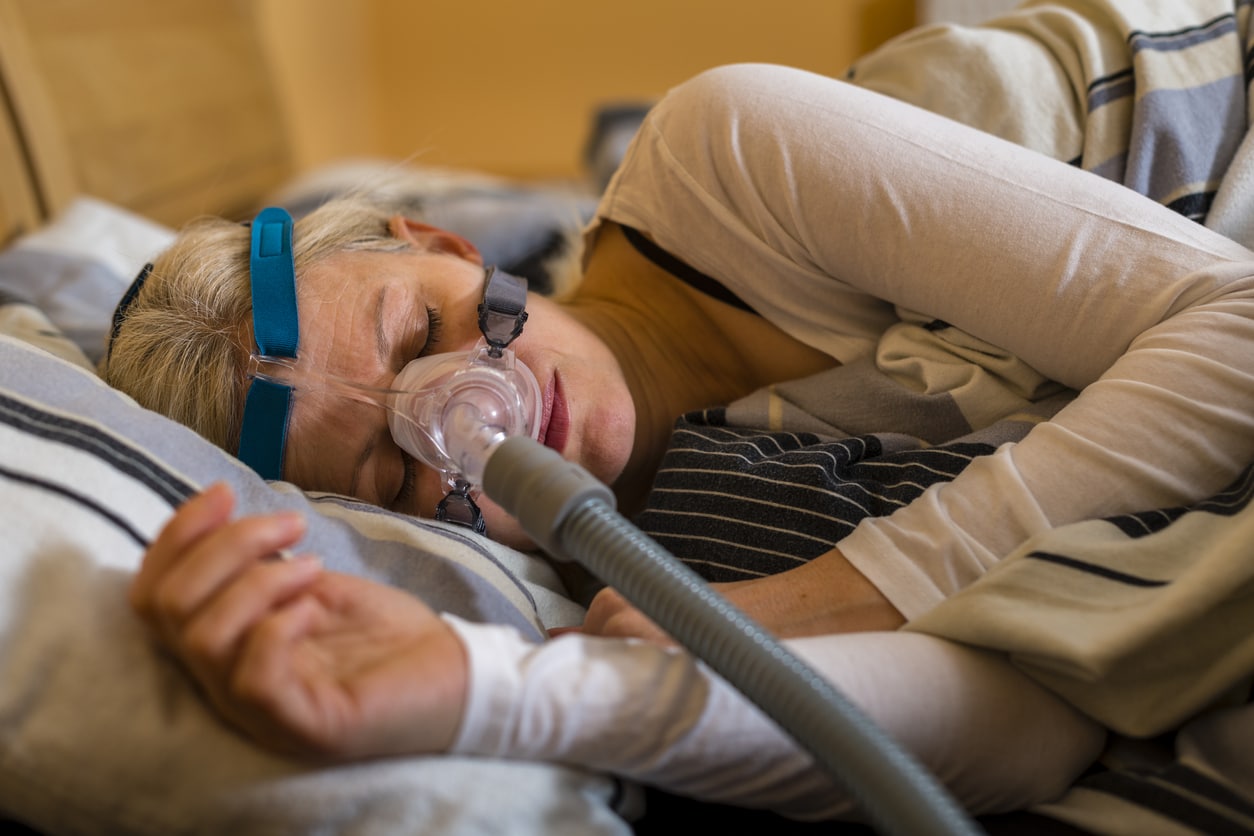Decreased hormone levels seem to be responsible for the increased risk of sleep apnea symptoms in postmenopausal women.
Middle-aged women with lower estrogen and progesterone levels than average are more likely to snore, breathe irregularly, or gasp while sleeping. These are all symptoms of sleep apnea.
The influence of these hormones means targeted hormone therapy could be helpful for postmenopausal women, says endocrinologist Kai Triebner from the University of Bergen in Norway.
ALSO READ
Doctor Dog would like to sniff you
Slapdip
‘Women live average taller than men, but in later life the quality of life of women is relatively low. This is related to their low estrogen levels,” Triebner says. ‘Snoring and sleep related breathing problems contribute even more to the low quality of life.’
Researchers have long suspected that sleep apnea is related to menopause, when hormone levels drop and the menstruation stops, says Triebner. A few small studies pointed to the concrete role that hormones estrogen and progesterone, but Triebner and his colleagues wanted to test these theories on a larger scale.
Snoring Test
His team surveyed women about their airway functioning and lifestyle. The women, some of whom have not yet entered the menopause were filled out questionnaires about their sleeping habits and health. The cohort studied consisted of 774 mainly white women between the ages of 40 and 67, in seven European countries. The team also conducted clinical tests and took blood samples. No pre- or postmenopausal trans men participated in the study.
Nearly half of the women reported experiencing “disruptive snoring,” Triebner says. In addition, 14 percent reported irregular breathing and 13 percent gasped for breath while sleeping.
less hormones
Blood analyzes showed that the estrogen and progesterone levels of the participants varied widely. In some women, only a few nanomoles of hormones per liter were found in the blood, while in others up to tens of thousands were detected. These variations were clearly linked to sleep apnea, the Norwegian researcher says. When levels of estrone, a type of estrogen, doubled, women were 19 percent less likely to snore. Even if the progesterone level doubled, the chance was 9 percent lower.
Within the group of snoring women, there was a 20 percent decrease in the chance of irregular breathing when the estrogen level doubled. And a doubling of progesterone levels was linked to a 12 percent lower chance of waking up feeling like choking.
All findings were adjusted for women’s stage of menopause, age, body mass indexsmoking habits and educational background, a number of factors that can influence hormone levels.
More than just snoring
The results clearly show a relationship between the menopause and sleep apnea. This makes sense, since certain types of estrogen are involved in building respiratory muscles, and progesterone stimulates respiration, Triebner says.
Sleep apnea is a potentially serious condition associated with heart disease and stroke† In addition, snoring can lead to relationship problems, says Triebner. ‘I think personalized hormone treatment after the menopause has great potential to improve the quality of life of many women. Most likely it will greatly improve the sleep disorder apnea.’
Still, further research is needed, Triebner says. “What may be beneficial to one woman may be harmful to another.”
–


